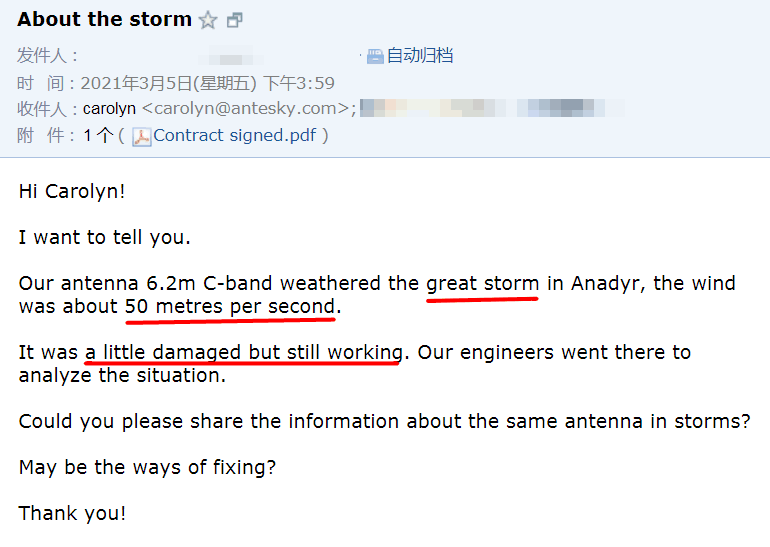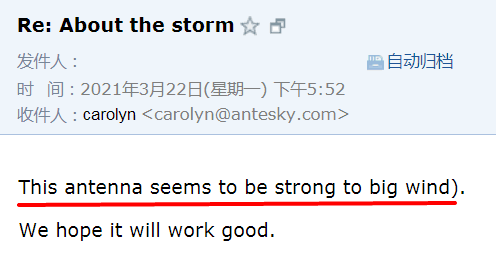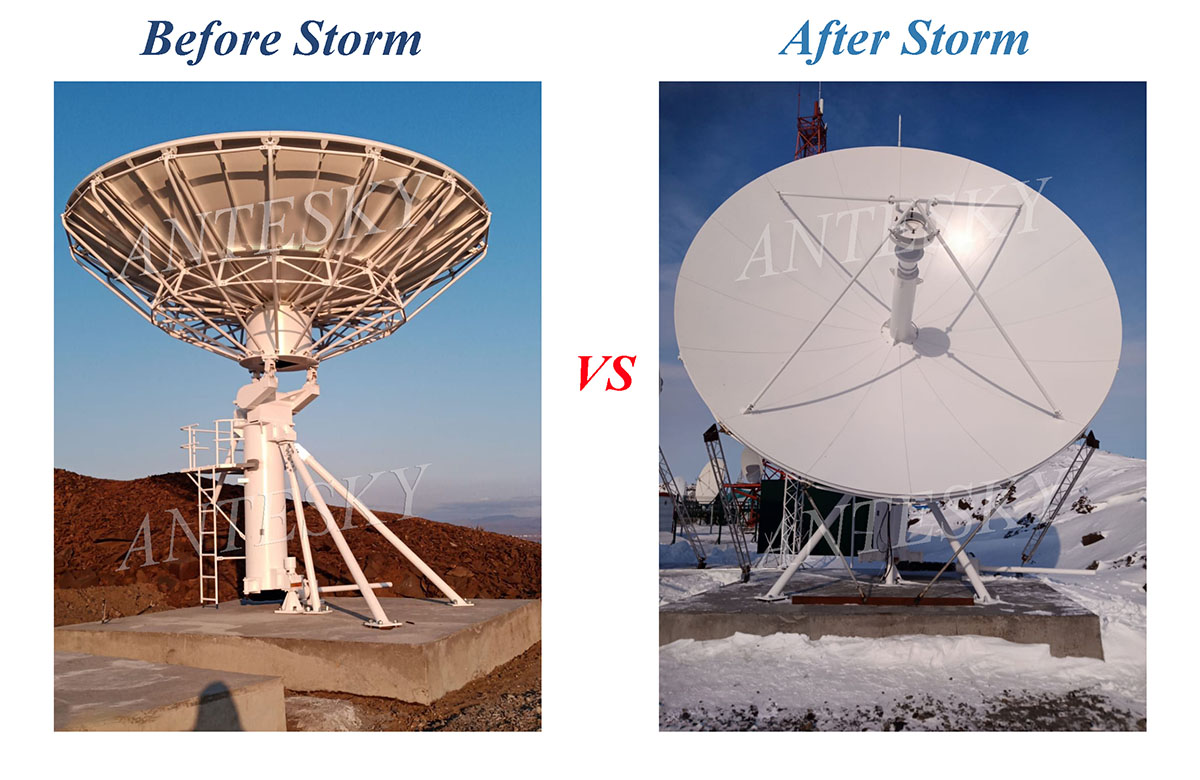Satellite Internet Forum.
Welcome, Guest. Forum rules.To search this site click here > SATSIG search
| Home Login Register |
| Satellite Internet forum › Satellite dish installations - pictures and descriptions › What will be after 6.2m motorised satellite dish experiencing heavy storm? |
|
Pages: 1
|
What will be after 6.2m motorised satellite dish experiencing heavy storm?(Read 1234 times) |
|
Antesky Vicky
Senior Member
★★★ Offline Posts: 65 |
Jan 15th, 2024 at 7:01am
|
| Back to top |
Antesky Science Technology Inc
TEL: 0086-29-88352448
IP Logged
|
|
Admin1
YaBB Admin
★★★★★ Offline Posts: 1252 |
Reply #1 - Jan 15th, 2024 at 5:58pm
|
| Back to top |
IP Logged
|
|
Admin1
YaBB Admin
★★★★★ Offline Posts: 1252 |
Reply #2 - Jan 17th, 2024 at 5:08pm
|
| Back to top |
IP Logged
|
|
Pages: 1
|
Email me: eric@satsig.net
Powered by YaBB 2.5.2!
YaBB Forum Software © 2000-. All Rights Reserved.
Disclaimer, Terms of Use and Privacy Forum User Agreement Forum rules Cookie policy.





